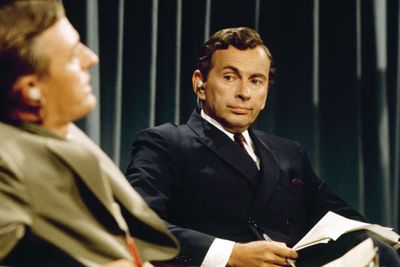Cautionary tale of culture wars screens at 2015 Phoenix Film Festival
By Hans Pedersen - March 26, 2015
There once was an era where the media did not generate controversy – at least, that’s the premise of this “cautionary tale” about the 1968 network television debates between liberal Gore Vidal and conservative William Buckley.
When Best of Enemies premiered at this year’s Sundance Film Festival, one staffer described it as a story about “the dawn of theatrical punditry.” The documentary is just one of many movies you can catch at the 2015 Phoenix Film Festival.
The two directors of Best of Enemies, Morgan Neville and Robert Gordon, just won the Oscar for best documentary for their dynamite film 20 Feet from Stardom, but here the pair move from the stage into the political spotlight.
Their latest film centers around defenders of both sides of the culture wars of the 1960s, focusing on the acid-tongued televised debates between prolific writers Vidal and Buckley.
The two intellectuals were hired by cash-strapped ABC to help fill time during their convention coverage, and the movie suggests they essentially wound up spawning a new way of inciting controversy on television.
This film explores the lives of both men, with Vidal notably one of the first people who was publicly out of the closet. The movie touches on his books –The City and the Pillar and Myra Breckinridge – which were among the first to explore gay and trans stories. Vidal stood up for our community at a time when few others would, and became a lightning rod in these debates.
Best of Enemies also delves into Buckley’s background as the founder of the magazine, theNational Review, and his appearance for more than three decades on the public television show “The Firing Line.”
Rich with clips from the ABC debates, Best of Enemies is stocked with a glorious assortment of footage. Someone must’ve really had to dig through a lot of old film canisters to find all these vivid network promos with crude sweeping animations that date back to an era when culture was ossified thru three or four channels on the tube.
In addition to outtakes and interviews that give this culture clash greater context, the film includes the footage of violence in the streets of Chicago. Those dramatic clips show how, from their living rooms, Americans witnessed the out-of-control tactics and brutality of the Chicago Police Department that year.
The doc ultimately does a splendid job of underscoring how the debate between the two archrivals was truly about the culture wars raging in the streets of America, and in the streets of Chicago during the Democratic Convention.
The movie also details the shameful moment when, after Vidal calls his rival a “crypto-Nazi,” Buckley lashed out with an anti-gay epithet. The movie goes on to suggest that shouting the homophobic remark haunted Buckley for the rest of his years.
The horror that people felt when Buckley used the word “queer” on live television is striking, as if suddenly the nation was sensitized to hate.
Most of the time these men spar with their piercing wit, so despite the fierce exchanges, this is not a movie filled with a lot of yelling. What is fascinating is how passionately both men feel about their positions, which seem to embody the modern opposing belief systems that have dominated American politics since.
Actor Kelsey Grammer does a splendid job voicing the writings of right-wing Buckley, who thinks Vidal is defending a collapsing social order. John Lithgow is also wonderful at reading the reflections of Vidal, as he argues that outdated Victorian value systems are what are causing strife.
But the movie tries to suggest that in the years before their deaths, Buckley’s career flourished while Vidal’s floundered.
The directors seem to ignore Vidal’s regular appearances on Bill Maher’s shows like “Politically Incorrect” and “Real Time,” perhaps because they don’t fit in with the premise he was on the demise, yet Vidal continued to speak truth to power even in his final years.
One can quibble with how the movie portrays Buckley and Vidal. But the film ultimately shows how identity politics of the modern era were shaped through these debates, and the directors reinforce that point while keeping the focus squarely on 1968.
